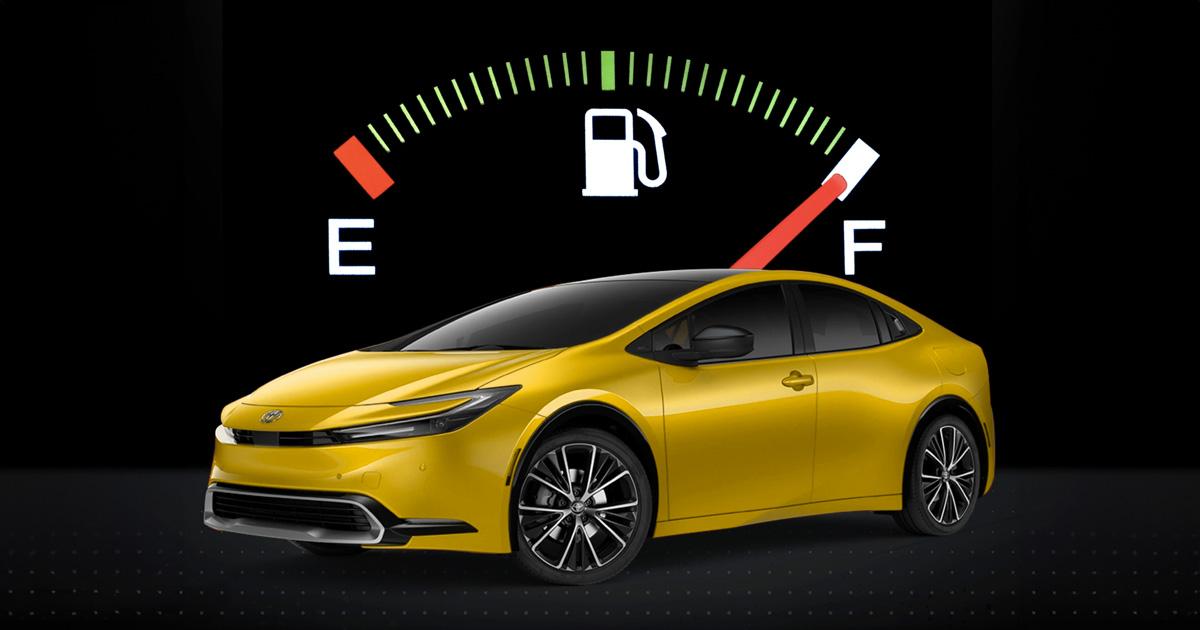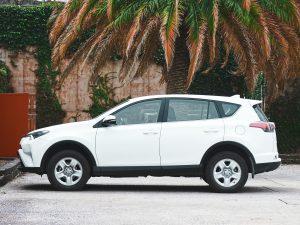How Much Gas Do Hybrid Cars Save? Should You Get One?

Hybrid vehicles have become a favored choice among those looking for greener and more fuel-efficient transportation alternatives. As concerns about the environment and fluctuating gas prices continue to rise, hybrid vehicles offer a promising solution. But are they as fuel-efficient as they claim to be? In this article, we will explore how much gas hybrid cars can save, compare their cost-effectiveness with gas-powered cars, analyze their maintenance expenses, and highlight the other savings they can provide.
Why are hybrid cars considered more fuel-efficient?
Hybrid cars achieve their fuel efficiency through a distinctive powertrain design that integrates an internal combustion engine, an electric motor, and a battery. This innovative combination allows hybrid cars to operate in different modes, optimizing fuel consumption based on driving conditions. At lower speeds and during city driving, the electric motor powers the vehicle, utilizing stored energy from the battery. Consequently, the internal combustion engine remains idle, leading to decreased fuel consumption and emissions.
Hybrid cars also employ a process called regenerative braking, which further enhances their fuel efficiency. Upon braking, the electric motor shifts into generator mode, capturing and converting kinetic energy into electrical energy stored in the battery instead of dissipating it as heat, as in conventional braking systems. By reusing this otherwise wasted energy, hybrid cars extend their electric range and reduce their dependence on the internal combustion engine, resulting in improved fuel efficiency.
How Much Do Hybrid Cars Save on Gas?
The amount of gas that hybrid cars save varies depending on several elements, such as the make and model of the vehicle, the driver’s habits, and the frequency of electric-only driving. On average, hybrid cars can achieve up to 20–35% better fuel efficiency compared to conventional gas-powered vehicles.
For instance, the 2022 Toyota Prius, a well-known hybrid model, offers an impressive combined fuel efficiency of approximately 50 mpg. In contrast, a similar-sized conventional gas car might only achieve around 25–30 mpg. This significant difference translates into considerable fuel savings over time for hybrid car owners, making them an economical choice for long-distance commuters and environmentally conscious drivers.
Are they expensive to own?
While hybrid cars may have a higher initial purchase price than conventional gas-powered vehicles, the long-term cost benefits can outweigh this initial investment. Hybrid car owners can recoup the higher upfront cost through fuel savings and reduced maintenance expenses over the vehicle’s lifespan.
Because hybrid cars primarily rely on electric power at lower speeds, their internal combustion engines undergo less wear and tear. This translates to lower maintenance costs, as fewer engine-related components need replacement or repairs. Moreover, the utilization of regenerative braking results in a reduced frequency of brake pad replacements, contributing to lower maintenance costs.
Additionally, various incentives and benefits are available to hybrid car owners, depending on their location. Federal tax credits, state incentives, and even employer incentives can help offset the higher purchase price of a hybrid car, making it more financially appealing.
Do hybrid cars save you money on other things?
Beyond fuel and maintenance savings, hybrid cars offer several other financial benefits. Various states and local authorities offer incentives to encourage the adoption of environmentally friendly vehicles. These incentives may include reduced registration fees, exemptions from tolls, and access to carpool lanes, which can save hybrid car owners both time and money during their daily commute.
Moreover, some insurance companies offer discounts on insurance premiums for hybrid car owners. The perceived lower risk associated with hybrid cars, coupled with their environmentally friendly image, makes them attractive to insurers, resulting in potential cost savings for policyholders.
Are hybrid cars better than gas cars?
The debate over whether hybrid cars are better than conventional gas cars is a common topic among automotive enthusiasts and environmentally conscious consumers. While both types of vehicles have their advantages and drawbacks, hybrid cars often come out ahead in several key aspects.

1. Fuel Efficiency
The standout benefit of hybrid cars is their exceptional fuel efficiency. As mentioned earlier, hybrid cars can achieve up to 20–35% better fuel efficiency compared to gas cars. This means that hybrid owners spend less money on fuel and make fewer trips to the gas station, which can be a considerable cost-saving factor over the vehicle’s lifetime.
2. Environmental Impact
Hybrid cars are undeniably more environmentally friendly than gas cars. By running on electric power, hybrid cars reduce greenhouse gas emissions and air pollutants, leading to improved air quality and a healthier environment. With growing concerns over climate change and air quality, the reduced carbon footprint of hybrid cars makes them an appealing choice for environmentally conscious drivers.
3. Long-Term Cost Savings
Although hybrid cars have a higher upfront cost, the long-term savings they offer can outweigh the initial investment. As discussed earlier, the fuel efficiency and reduced maintenance expenses of hybrid cars can lead to significant savings over time. Additionally, incentives and tax credits offered by governments and employers further sweeten the deal for hybrid car owners.
4. Technological Advancements
Hybrid cars often incorporate cutting-edge technology, making them more advanced and feature-rich than conventional gas cars. The integration of electric motors, regenerative braking systems, and sophisticated computer controls showcases the level of innovation in hybrid vehicles.
5. Driving Experience
Many drivers appreciate the smooth and quiet driving experience that hybrid cars offer when running on electric power. In city traffic and when driving in start-stop situations, the instant torque that electric motors produce can lead to responsive acceleration.
However, it is essential to consider the individual needs and preferences of each driver. For those who primarily drive long distances on highways, a fuel-efficient gas car might still be a practical choice. Gas cars tend to offer more range and may be more suitable for certain driving patterns and lifestyle choices.
Hybrid Cars are Great Vehicles to Have
Hybrid cars are a safe and environmentally friendly choice for people who want to save money on gas and lower their carbon footprint. Even though hybrid cars may cost more at first than gas-powered cars, they are worth the extra money because they save you money on gas, don’t need as much upkeep, and may even be eligible for tax breaks. Hybrid cars look like they will do well in the future, thanks to better technology and rising customer demand for environmentally friendly transportation.
More companies investing in hybrid technology means that fuel efficiency and cost-effectiveness will likely get even better. This will make hybrid cars even more appealing to a wider range of buyers. In a world where environmental issues are becoming more important, hybrid cars give people a real way to help make the future cleaner and more sustainable while also saving money on fuel costs over time. A hybrid car is a great choice if you want a car that not only saves you money at the gas station but also helps protect the environment.

